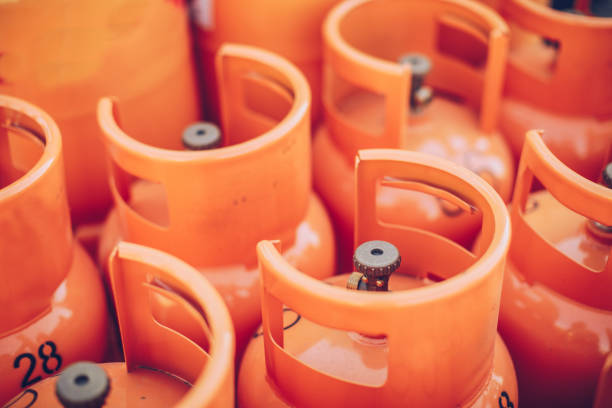Nigerians are reeling from a recent surge in cooking gas (LPG) prices, with costs now reaching as high as ₦2,000 per kilogram in some locations. Prior to this spike, the average price sat between ₦1,200 and ₦1,300 per kg.
The Nigerian Association of Liquefied Petroleum Gas Marketers (NALPGAM) insists the surge is not due to any official price hike, rather, they point blame at temporary supply disruptions and opportunistic marketers inflating margins.
Oladapo Olatunbosun, the National President of NALPGAM, stated on Channels Television’s The Morning Brief that “prices of cooking gas have not gone up. No increment has been done officially.”
He argues that a strike by the Petroleum and Natural Gas Senior Staff Association of Nigeria (PENGASSAN) against Dangote Refinery triggered supply gaps, which some marketers have leveraged to “cash up” by boosting prices unjustifiably.
Before the disruptions, Dangote Refinery was reportedly dispatching around 50 trucks per day, supplying much of the South-West and parts of the North directly to offtakers, cutting out middlemen and making importation less competitive.
But as maintenance works began, truck loading slowed drastically, with some trucks waiting up to 14 days at Dangote’s yard. Marketers then shifted to sourcing from Apapa depots, relying on imports and international oil companies (IOCs).
When PENGASSAN’s strike hit, vessel discharges, inspections, and depot operations at Apapa were halted.
One LPG vessel intended for three depots could not berth, and even when it did, inspectors were absent, leading to five days’ delay in offloading. Depots went “dry,” and the shortage deepened, especially in the South-West (which consumes the largest share of LPG in Nigeria).
Olatunbosun notes that Nigeria’s national LPG consumption jumped from about 1.2 million metric tonnes three years ago to nearly 2 million metric tonnes today.
That growth, he argues, makes the system more fragile: any disruption ripples more severely through supply chains. The marketers’ association describes the current scenario as “artificial and temporary.”
They claim that prices between ₦1,700 and ₦2,000, or even as high as ₦3,000 in some areas, are being driven by middlemen and multiple layers of resellers.
Olatunbosun advised consumers to buy directly from registered gas plants, warning that purchasing through third or fourth parties inflates costs.
“In the Southwest today … average price within my members … is between N1,000 to maximum of N1,300,” he asserted. He added that in some localities, before this “artificial scarcity,” prices had been as low as ₦950 to ₦1,050.
The association says that as the strike has ended and vessels are discharging, trucks are now mobilizing to restock depots. They are optimistic that “normalcy will return in the next few days.”
However, consumers remain vulnerable. Short-term distortions can embed consumer distrust and fuel expectations of further hikes.
As Nigeria invests more in refining and local infrastructure, recurring bottlenecks, maintenance shutdowns, labor disputes, distribution delays, will continue to threaten stability.
For now, the burden of risk falls on households already stretched by inflation and energy insecurity.

